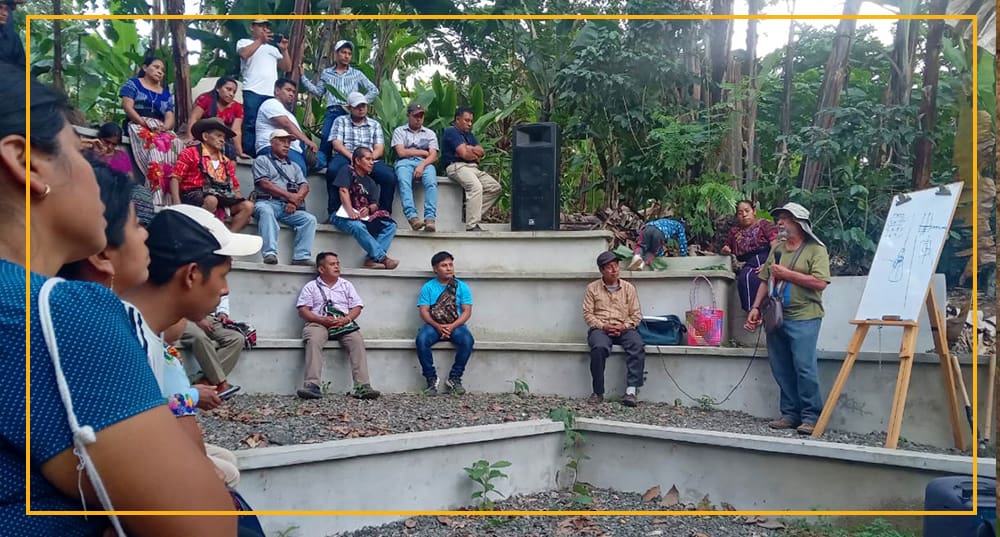
Program Overview
For generations, rural Guatemalan families have faced the challenges of chronic malnutrition, disease, poverty, and limited access to resources.
Through the Program of Seeds for a Future, families and communities are taking proactive steps to address these challenges by cultivating their own nutritious food, improving household health, and creating new income sources.
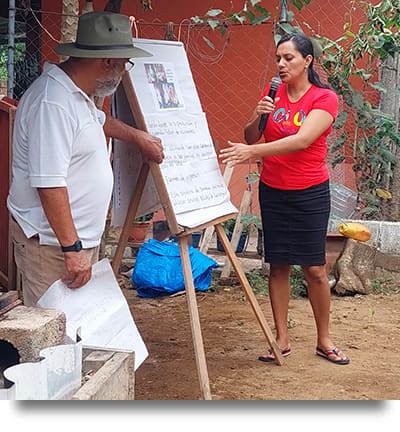
The underlying goal of Seeds for a Future's Program is to provide essential training for families and communities to create their own food security and live healthier lives.
Started in 2009, our Program is a hands-on 12-month mentorship program with weekly training and check-ins.
Participants are not simply exposed to new skills and information and then left on their own.
They’re trained and supported to help them recognize and solve problems, to become comfortable and confident in their knowledge and embed their knowledge into their daily thinking and routine.
As each family gains fluency with their permaculture gardens, animals, and nutrition and health expertise, they share their knowledge with extended family and neighbors.
Through taking personal action, Program participants can overcome many of the obstacles they face and live resilient, self-reliant lives.
This long-term "bottom-up" approach enables rural Guatemalans to sustainably generate their own food security, enjoy healthy diets that reduce illnesses, such as infant and child stunting, and foster new income opportunities.
As of 2026, nearly 6,000 families have participated in the Program, which is currently operating in 21 communities throughout rural Guatemala.
Seeds for a Future's Program Combines Three Core Elements:
Sustainable Food Security
Nutrition and Health Education
Micro-Business Creation
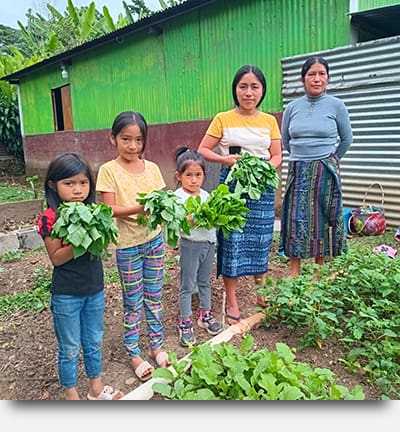
What is the Impact of the Seeds for a Future Program?
Program participants become more self-sufficient and self-reliant by creating the following outcomes for themselves:
- Sustainable food security
- Improved health and well-being
- New income opportunities
Of critical importance, with better food security and nutrition, fewer infants are born with stunting and health issues, while children and adults live healthier and more fulfilled lives.
A study of the Seeds Program using a randomized control trial was conducted from 2014 to 2017 by the internationally respected Institute for Nutrition in Central America and Panama (INCAP).
Funded by the Nestlé Foundation of Switzerland, INCAP’s research revealed that Seeds for a Future’s strategies and methods produce measurable positive improvements in the health of participating mothers and babies, cutting childhood anemia rates from 47% to under 5% in families participating in the Program, over a 90% reduction
“This is the first time that an integrated health, nutrition, and agriculture project demonstrated a positive outcome in biochemical biomarkers in women and children, and therefore, there is a great potential for escalating the model to other regions.”
The Program also empowers women while allowing new opportunities for citizens who may have otherwise migrated abroad to stay in their communities.
Fostering Community Development
Our Program includes vital factors for achieving acceptance and resilience within communities:
Sensitivity to the cultural context
Relevance to needs and interests
Ethnic, political, and religious neutrality
Use of appropriate learning techniques such as learn-by-doing and guided observation
Design for affordability and the reinforcing effect of early success
Experience has shown these factors are also critical for success:
Field teams are local to the area and trained to model mutual respect
Encouraging innovation and learning from failure as well as success
Self-selection by families indicates a willingness to learn and do their part
Encouraging the sharing of both knowledge and resources
The Program's integration and reach into the communities it serves has not been a matter of luck.
The hard work and persistence of the team and the program's participants have evolved a unique, long-term food security and health program that continues to grow and expand.
Seeds For a Future's Program Aligns with the Following United Nations Sustainable Development Goals:
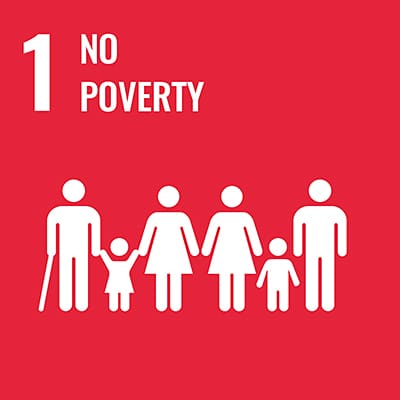
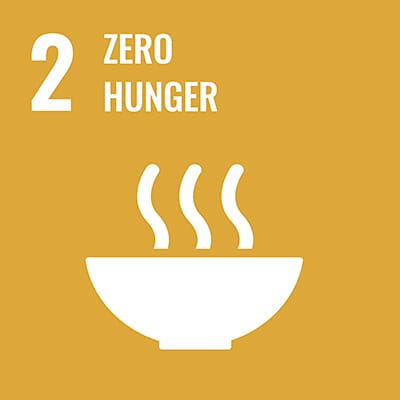
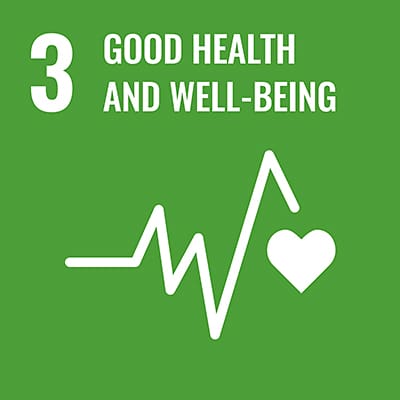
Our Partners:







